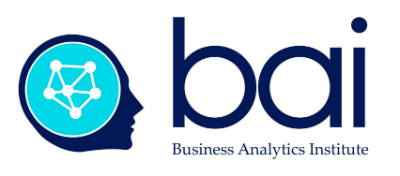And if Digital Transformation wasn't the end goal?
On one level I greatly enjoyed last week’s Fnege conference on digital transformation[1], on the other I can’t help but feel that somehow we are missing the point. The conference topics focsed on the the keys to the digital transformation of organizations, the importance of the digital economy, and the importance of customer value. The presentations by Essec’s Nicolas GLADY, Insead’s Axel TAGLIAVINI, and Catherine MONGENET of Fun-MOOC on the importance of digital platforms, practices and Moocs were all interesting in their own right. Yet, despite the brillance of the orators, several critical points on the role of digital technologies, the nature of digital economy, and the value of customer perceptions went largely unaddressed.
Let’s begin with the theme of the conference itself – the digital transformation of the organization (“la transformation digitale des établissements”). The very idea that orgnizational leadership should drive digital transformation through a top-down approach is debatable at best. Is structural change a corporate priority or simply a potential consequence of how digital technologies have impacted business communities and trade practices? Rather than arguing adopting digital best practices is a panacea for the modern organization, it appears both more pertinent, and more effective to examine how digital technologies change the modes of participation and of decision-making in business communities. New business practices, rather than new technologies, are the prerequisites to organizational innovation.
The inhernetly transformational nature of the digital economy is largely exagerated. The continuous multiplication of data and technology has not yet produced an economic revolution, but it has provided a broader set of tools to analyze influence, and measure physical economies, of people, organizations, and ressources. Data is nothing more than imperfect mirror of the busness realities around us, and information is simply a measure of the pertinence of data in the context of consumer experiences. At their very best, digital technologies help us understand how to align our product or service offer around customer needs and expectations. The introduction of digital technologies doesn't magically produce decisions that transform data into action, people do.
Understanding stakeholder value has always been, and will continue to be, the cornerstone of any successful organization. The near half-century old debate on succeeding visions of the “new” economy has been in discussion on how to best gauge business value.[2] The idea that physical and digital products are essentially proxies of customer value has how been largely accepted in the successive propositions of the Digital, Experience and Attention Economies. Steven Sinofsky has argued convincingly that productivity today is closed linked to our ability to use data to solve customer problems.[3] Platforms models take this argument a step further in suggesting that technology can be deployed to help suppliers and customers use data to solve their own challenges.[4]
The potential value of digital transformation is intimately tied to its ability to measure the impact of our decisions. Digital strategies are designed today to capture the objectives, motivations, and engagements of various organizational stakeholders. The stickiness of marketing messages and cultural values can be successfully measured over time. Data on the context in which decisions are taken can be aggregated in omnichannel approaches. Social Graphs can be constructed and analyzed to determine how communities affect personal and organizational decision making. Digital transformation isn’t an end in itself, but a means to improve the pertinence of our decision-making, and that of those around us.
Improving managerial decision making is the objective of the Business Analytics Institute. In our Master Classes in Europe, as well as our Summer School in Bayonne, we explore the skills and methods that can improve decision-making in your organization. The Institute focuses on five applications of data science for managers: working in the digital age, managerial decision making, machine learning, community management, and visual communications. The end goal of digital transformation iisn't technology, but a manager's state of mind.
-----------------
[1] La FNEGE, "Transformation Numérique des Etablissements d’Enseignement Supérieur en Management", Paris, March 30 2017
[2] See Bell, D. (1973), The Coming of Post-Industrial Society. A Venture in Social. Forecasting, Basic Books : New York
[3] Sinofsky, S. (2013), Continuous Productivity: New tools and a new way of working for a new era, Blog Post
[4] Van Alstyne, M.W., et al (2016), Pipelines, Platforms, and the New Rules of Strategy , HBR, April 2016


